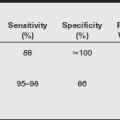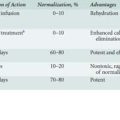
A woman watching the sunset and thinking about maintaining sobriety
Achieving sobriety is a remarkable accomplishment, but it’s not the end of the journey. On the contrary, it’s the beginning of a new and healthier life. After overcoming addiction, the path to lasting recovery requires dedication, resilience, and a proactive approach to healthy living. We understand your challenges on this journey, from navigating triggers to finding a sense of purpose. Whether you’re early in your recovery or have been on this path for a while, these tips are designed to empower you to stay sober and embrace a brighter future. Let’s embark on the journey of maintaining sobriety together, armed with the knowledge and tools to live your best, substance-free life.
Building a Strong Support Network
Recovery is a journey that’s often challenging to walk alone. Maintaining sobriety starts with building and maintaining a strong support network. The people you surround yourself with are your lifeline – they can be the difference between resilience and relapse.
But before we dive into creating a support network, it’s crucial to address any toxic relationships in your life. These are individuals who may encourage substance use or hinder your progress. While it can be difficult, sometimes it’s necessary to distance yourself from those who don’t support your recovery efforts.
Then, seek out individuals who genuinely care about your well-being, understand your journey, and provide unwavering encouragement. This can include family members, close friends, or support groups like Alcoholics Anonymous or Narcotics Anonymous. Connecting with those who share similar experiences can foster a sense of belonging and understanding. Remember that healthy relationships are reciprocal. Be there for your supporters as they are for you, creating a bond built on trust and mutual growth.

Regular physical activity and a balanced diet can help with maintaining sobriety
Prioritizing Physical Health while Maintaining Sobriety
Substance abuse can wreak havoc on our bodies, leading to malnutrition, weakened immune systems, and various chronic health issues. Maintaining a healthy lifestyle during active addiction can seem impossible, but prioritizing physical well-being becomes paramount in recovery. When you embark on your recovery journey, addressing and healing these physical wounds is essential.
Regular exercise and a balanced diet can do wonders for your physical health. Engaging in physical activity not only releases endorphins, improving your mood, but it also helps your body recover faster. A diet rich in nutritious foods can repair damage caused by addiction and provide the energy needed for a fulfilling life in sobriety.
Of course, adequate sleep is also crucial for physical health and mental well-being. Establishing a consistent sleep routine can aid in recovery by reducing cravings and enhancing cognitive function. Also, managing stress through meditation and deep breathing can support your body’s healing process.
Nurturing Mental and Emotional Health
Recovery is about abstaining from substances, but it also entails nurturing your mental and emotional well-being. Addiction often leaves emotional scars and wreaks havoc on mental health, making it crucial to address these aspects of your life in sobriety.
The Connection Between Mental Health and Addiction
Substance abuse often serves as a coping mechanism for underlying mental health issues. In recovery, addressing these issues is essential to prevent relapse. Cognitive-behavioral therapy and counseling can provide valuable insights and tools for mental health management.
Mindfulness and Self-Care
Incorporating mindfulness practices and self-care routines into your daily life can help you better understand and manage your emotions. These practices can reduce depression, anxiety, and stress, making it easier to navigate recovery challenges.

Taking time for self-care and connecting with yourself is vital
Avoiding Relapse Traps
Avoiding relapse traps can feel akin to navigating a minefield. While maintaining sobriety is a commendable feat, it’s crucial to be aware of the potential pitfalls that can threaten your progress.
First, identify what or who triggers your cravings and old habits. While triggering situations are unique to each person, it’s vital to recognize them. Triggers can be environmental, emotional, or social. Understanding these triggers is crucial for developing a plan to counteract them.
Next, it’s essential to develop practical strategies to navigate high-risk situations like parties, stressors, or encounters with old acquaintances who may encourage substance use. These strategies empower you to maintain your strength in the face of temptation.
Setting Meaningful Goals and Staying Motivated
Setting specific, attainable goals provides direction and purpose in your recovery. These goals guide you forward and help you measure your progress. Studies have shown that patients at Little Creek Recovery who set clear and meaningful goals during their recovery tend to achieve long-lasting sobriety.
The first step in setting goals is to find your motivation and then stay motivated. Motivation is the driving force behind your recovery. Keeping your motivation levels high may be challenging, especially when facing challenges or setbacks. Discover how to tap into your inner determination and find inspiration in your journey. By doing so, you’ll stay on the path of sobriety and embrace a future filled with purpose and fulfillment.
Engaging in Meaningful Activities
Recovery is not only about quitting substances but also about rediscovering the joy of life. Here are some practical tips on how to engage in meaningful activities that enrich your life and support your sobriety journey.
- Discover Your Passions: Begin by exploring your interests and passions. What activities have always intrigued you? You can find enjoyable pastimes that provide fulfillment and purpose by identifying these.
- Connect with Nature: Nature offers a serene and healing environment. Find ways to spend more time in nature, whether hiking, gardening, or simply taking walks in the park.
- Volunteer and Give Back: Helping others can be incredibly rewarding. Consider volunteering for a cause that resonates with you. It gives you a sense of purpose and connects you with a community of like-minded individuals.
- Pursue Hobbies and Interests: Rekindle old hobbies or explore new ones. Hobbies like painting, playing an instrument, or cooking can be both enjoyable and therapeutic.
- Stay Social: Maintain social connections by spending time with friends and family who support your sobriety. Join clubs or groups that align with your interests to meet new people.

From crafts to hiking to sports to painting, there are plenty of hobbies and pursuits you can enjoy
Embracing a Fulfilling, Substance-Free Life
Maintaining sobriety is a lifelong journey that requires dedication and a holistic approach. By building a strong support network, prioritizing physical and mental health, setting meaningful goals, avoiding relapse traps, and engaging in meaningful activities, you empower yourself to lead a fulfilling, substance-free life. Remember, your path to sobriety is unique, and these strategies will guide you toward lasting recovery. Stay resilient and embrace the brighter future that awaits you.




